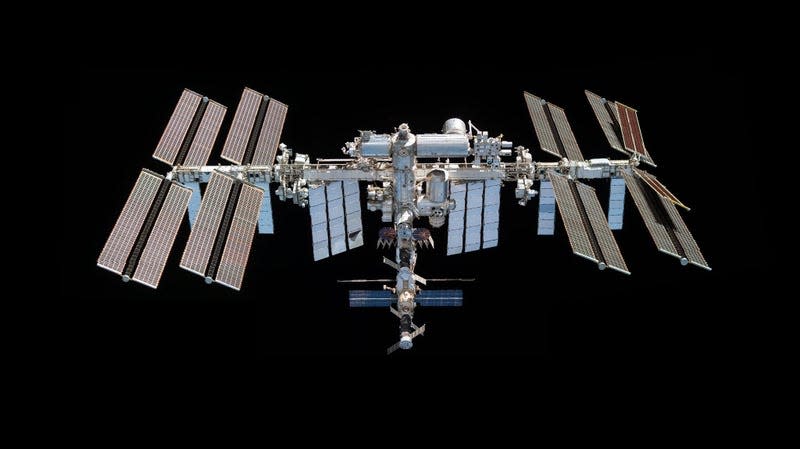ISS Astronauts Are Testing a New Surface Coating to Fight Space Germs

The antimicrobial surface coating is currently being tested on board the ISS before it’s sent back to Earth for analysis.
For astronauts living aboard the International Space Station (ISS), space germs are bad news. The confined environment, plus a weakened immunity system, and more aggressive bacteria, means that catching a cold in space is way worse than on Earth. In order to help stop the spread of viruses in space, Boeing developed an antimicrobial surface coating that is currently being tested on board the ISS.
The polymer coating launched to the space station on November 9 as part of SpaceX’s 29th commercial resupply mission. The ISS experiment will place several aluminum placards in four locations on the station, including the galley, the toilet, and the workout and hygiene areas, according to the ISS national lab.
Read more
Will Smith Responds to Rumors That He Allegedly Slept With Duane Martin
Jada Pinkett-Smith Responds to 'Salacious' Rumors That Will Smith Allegedly Slept With Duane Martin
These Are The Fastest Depreciating Cars Over The Past Five Years
Brad Pitt’s F1 Movie Scraps Millions Worth Of Footage Over Dodgy Sponsorship Deals
“We are looking at that long-duration microbial protection in space, and you just really can’t simulate that kind of long-term microgravity and radiation levels in an environment on Earth,” David Corporal, a research engineer for Boeing, said in a statement.
Boeing, in partnership with the University of Queensland, designed the polymer coating to fight the spread of bacteria and viruses. This is the second time Boeing has flown its surface coating to the ISS, with the first experiment taking place in 2021. “We had good results during our first flight, and now we’re going back with lessons learned to test this technology more broadly across the space station,” Corporal said. “This is to further hopes of eventually reducing the microbial burden on long-term space missions for crew and systems, as well helping reduce any contaminations of other worlds that may be visited in the long run.”
For more spaceflight in your life, follow us on X (formerly Twitter) and bookmark Gizmodo’s dedicated Spaceflight page.
More from Gizmodo
A Black Man’s Broken Jaw Just Cost These White Dudes a Milli
Warner Bros.’s Coyote Vs. Acme fiasco attracts congressional attention
Kotaku Asks: Who Got Snubbed At The Game Awards Nominations?
Sign up for Gizmodo's Newsletter. For the latest news, Facebook, Twitter and Instagram.

